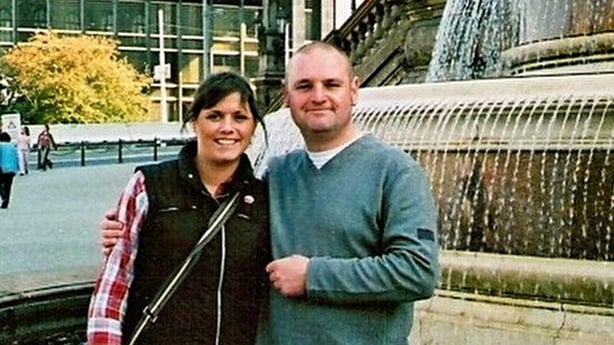A Co Derry woman has won an appeal to Britain's Supreme Court after being denied payments from her late long-term partner's occupational pension.
Denise Brewster from Coleraine, challenged a ruling that she was not automatically entitled to a "survivor's pension" as she would have been if the couple had been married.
Five Supreme Court justices unanimously ruled she is entitled to receive payments under the pension scheme.
Ms Brewster and Lenny McMullan lived together for ten years and owned their own home.
They got engaged on Christmas Eve 2009, but Mr McMullan died suddenly in the early hours of 26 December.
At the time of his death, Mr McMullan had 15 years' service with Translink, which delivers Northern Ireland's public transport services.

Mr McMullan had been paying into Northern Ireland's local government pension scheme.
Under the regulations, married partners automatically obtain a survivor's pension, but unmarried partners only receive a pension if there has been compliance with an "opt-in" requirement.
Northern Ireland Local Government Officers' Superannuation Committee (Nilgosc) refused Ms Brewster a survivor's pension because the committee had not received the appropriate nomination form from Mr McMullan.
The High Court in Northern Ireland allowed her legal challenge against the refusal, but the Court of Appeal overturned that decision.
Now the Supreme Court has ruled in Ms Brewster's favour on the grounds the opt-in nomination rule breached Article 14 and Article 1 of the First Protocol of the European Convention on Human Rights.
Giving the Supreme Court's ruling, Lord Kerr said he considered the objective of relevant provisions of the 2009 regulations "must have been to remove the difference in treatment between a long-standing cohabitant and a married or civil partner of a scheme member.
"To suggest that, in furtherance of that objective, a requirement that the surviving cohabitant must be nominated by the scheme member justified the limitation of the appellant's Article 14 right, is, at least highly questionable."
Ms Brewster's solicitor Gareth Mitchell said the rule the five Supreme Court justices declared unlawful is found in most of the UK's public sector pension schemes, affecting 12 million members.
He said: "It is also found in many defined benefit pension schemes in the private sector, of which there are around 11 million members.
"This was a decision of the Supreme Court of the UK and it affects the whole of the UK.
"The discrimination under the Human Rights Act identified by the Supreme Court means that wherever similar provisions appear in public sector schemes they are likely to be unenforceable and we expect them all to be removed.
"While the Human Rights Act does not bite on private sector schemes, members of those schemes will expect their pension scheme providers to follow suit and to operate schemes which do not discriminate unfairly on grounds of marital status."
We need your consent to load this rte-player contentWe use rte-player to manage extra content that can set cookies on your device and collect data about your activity. Please review their details and accept them to load the content.Manage Preferences

